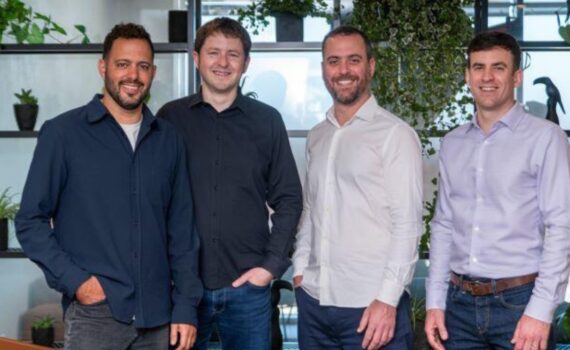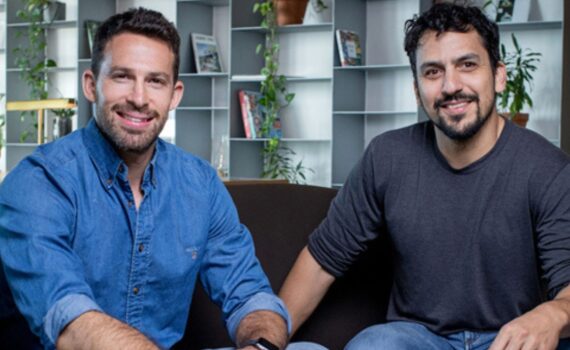
Source: Link
the Startup Using AI to Help Lawyers Discover New Cases
Generative AI is going to be at the core of everything. But legal tech is at the forefront of the rollout.
In this industry, we’re seeing companies use AI to rip out old infrastructure, and create growth – not just increased efficiency. This is an industry that traditionally saw only marginally improvement in efficiency – somewhat due to previous technology waves not really changing the core tasks and also potentially due to the hour-based model which didn’t always help promote technologies increasing efficiency. This is all chaning now with the new wave of AI capabilities.
Darrow is a key case study in this field. Darrow leverages generative AI to sift through massive amounts of data, including public records, administrative documents, social media, SEC cases and other sources of information. This allows Darrow to surface egregious legal violations and unidentified high-value cases, match them with public interest law firms, and fill cracks in the justice system. Darrow helps lawyers find the right cases – and at the same time makes sure that corporate bad actors are not getting away with wrongful behaviors.
That workflow has led to 6x year-over-year growth. That growth is testament to the fact that the 100x change in productivity that AI enables can finally overcome the high friction that has led to slower rates of tech adoption some sectors.
Based on that traction, Darrow recently raised a $35 million Series B round led by Georgian, with participation from NFX, F2 and Entree. Here’s what we saw in them at seed:
1. AI + Industry Fit Drives Growth
Generative AI is so powerful that it’s tempting to use it indiscriminately. Inexpertly applied, AI leads to 10x improvements, when, if expertly applied, it can lead to 100x improvement.
To do this, you have to ensure that the skills of your AI model are aligned with the most valuable skills of the vertical you’re working in. In general, we see the potential for AI disruption in an industry according to two variables: the percentage of a task that’s completable by the model, and the market value of the task itself.
Legal is a clear winner for two reasons.
1) The core work product of any law firm is language – writing or understanding it – the exact core capabilities of LLMs
2) Legal language (or the time it takes to write it) is already a high value product.
It is important to say that the billable hour model was – and still is – a barrier for adopting AI technologies on the efficiency front. But when it comes to discovering and taking on more cases – this is not a limitation as it doesn’t reduce billable hours and immediately translates to growth potential for law firms. We therefore believe that we will see AI adoption in the legal field first where AI introduces new revenue streams (the way Darrow does) or AI enables better winning ration through tasks that can’t be executed by humans.
Darrow’s technology fits well with the industry and leverages it to help firms grow. The fit + growth points are a key part of the AI value proposition that many founders overlook.
2. An Undisrupted Niche
Traditionally, law firms source cases with direct marketing, pro bono work, referrals, PR, or networking. Darrow is introducing an entirely new, and automated form of case discovery for law firms. They’re creating an optimized, automated process where the previous option was a fractured and piecemeal.
This is an example of what we call “AI leapfrogging” in the case discovery process. AI leapfrogging is the potential for a new technology to “skip” from analog processes to advanced technologies because it immediately leads to 100x improvement. This happens when an advancement delivers instant value, and is easy to adopt.
In Darrow’s case AI is unlocking latent supply by identifying cases that would otherwise be missed. The value is clear: Darrow has uncovered over $10 billion in litigation work for over 50 leading law firms.
Darrow’s AI leapfrogs many analog case discovery processes and sets a new standard for the industry. This niche, that was literally disrupted for decades, presents a huge opportunity – one that the Darrow founders decided to focus on when starting the company.
While we are generally worried when founders claim to have found a niche that’s huge yet wasn’t disrupted at all – in many cases it means either the market is small and not interesting or they are just not aware of competition – with the emergence of new AI capabilities this is really possible and what got us very excited about the company.
3. A Builder’s Culture
Before Darrow had any investors, they had a working product.
Founded by Evyatar Ben Artzi, Gila Hayat, and Elad Spiegelman, the team has a builder’s culture. That culture is why today, Darrow was ready to capitalize on the newest advancements in generative AI. The team is comprised of product and technology experts and we were sure they can deliver on their big promises.
In today’s environment speed is more important than ever. The new AI capabilities can deliver amazing results in a very short time – but if you wait, someone else is likely to deliver these before you do. Since the beginning, the Darrow team has never wasted time. They got to work. And that’s what we are looking for in founding teams we invest in.
Try Darrow for yourself at https://www.darrow.ai/




